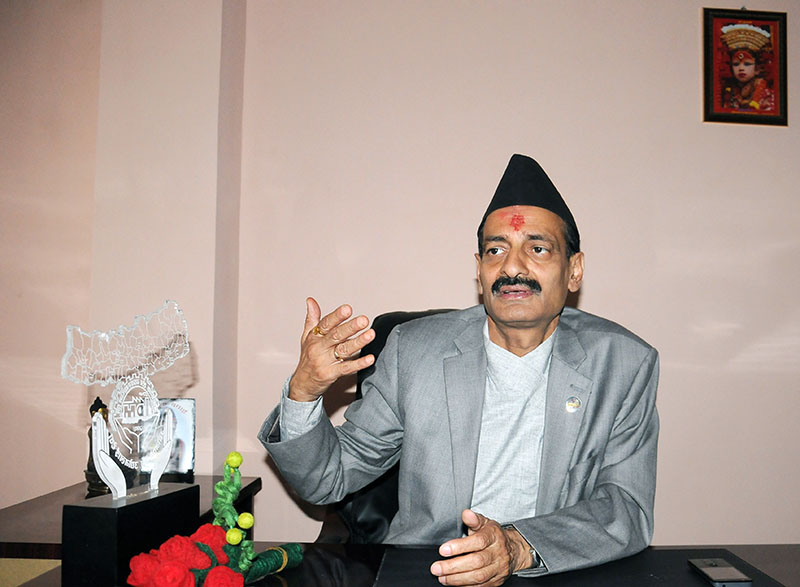‘Close coordination among government bodies must to attract investment’
Kathmandu, November 17
Industry Minister Nabindra Raj Joshi has said that coordination between different government bodies is a must to create an environment which is friendly for investment in Nepal.
Speaking at a meeting with representatives of different multinational companies and projects in Nepal, Minister Joshi informed that the Ministry of Industry (MoI) is closely coordinating with other ministries and other government bodies in a bid to ease procedural hurdles and policy ambiguity which exists in the industrial sector of the country so investors do not face procedural hurdles and other obstacles while investing in Nepal.
“We are working to show investors that the investment climate has improved significantly in Nepal,” Joshi said, adding that the government will implement ‘one window policy’ adopted by Industrial Enterprises Act for industries, projects and investors.
According to him, the International Investors Summit being held in the Capital on March 2 and 3 next year would focus on disseminating message about the improved investment climate in Nepal to potential foreign investors.
Meanwhile, Joshi also assured that every logical demand of the private sector that would contribute to the industrial growth and economic prosperity of the country would be fulfilled.
“MoI is aggressively promoting small- and medium-scale enterprises to generate huge employment opportunities and seeks support from all stakeholders,” added Joshi.
Industry Secretary Shankar Prasad Koirala said that MoI has kept upliftment of the industrial sector of the country by minimising policy hurdles in high priority. “By removing all policy-related obstacles that investors face in the country, the MoI will soon create a private sector-friendly environment,” said Koirala.
During the meeting, representatives of multinational companies operating in Nepal informed Minister Joshi that facilities given to industries by Industrial Enterprise Act and others often clash with Financial Acts due to ambiguity in government policies itself.
They also said that productive industries in Nepal are losing competitiveness as the customs duties imposed by government on raw materials and finished products are almost the same.
They also highlighted the need to facilitate procedures for industries during registration, operation and repatriation.






